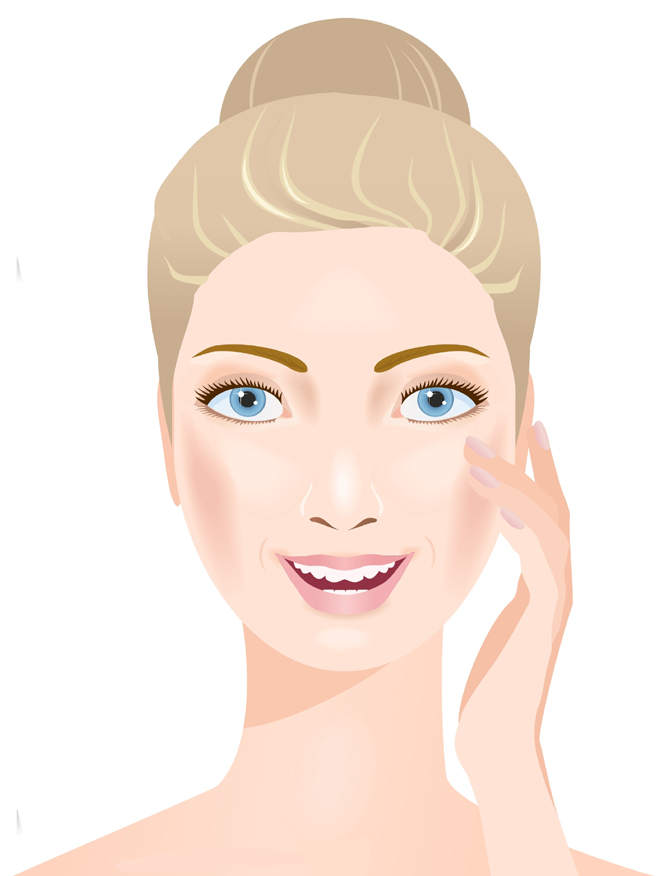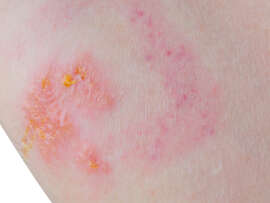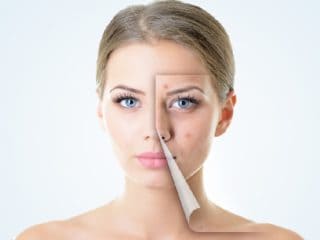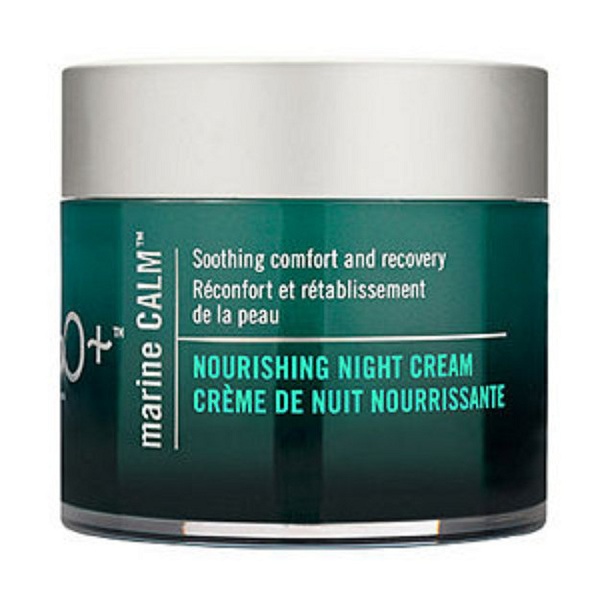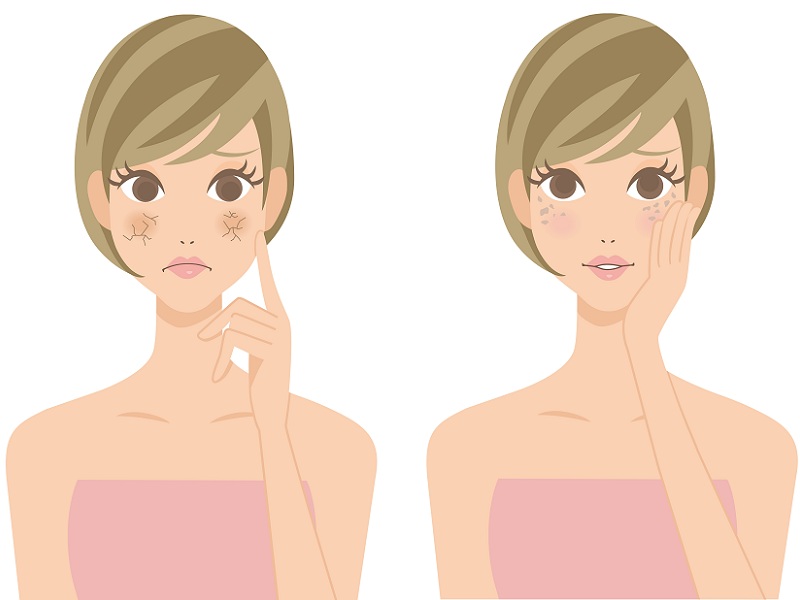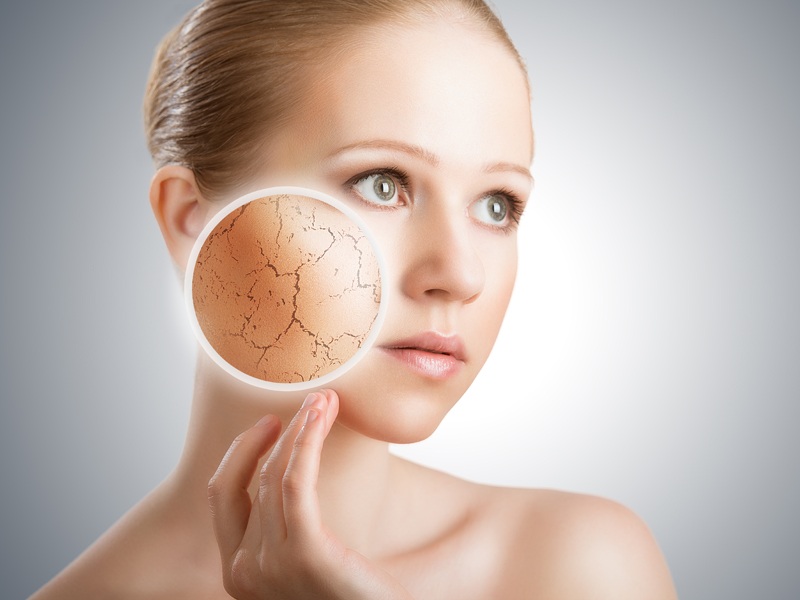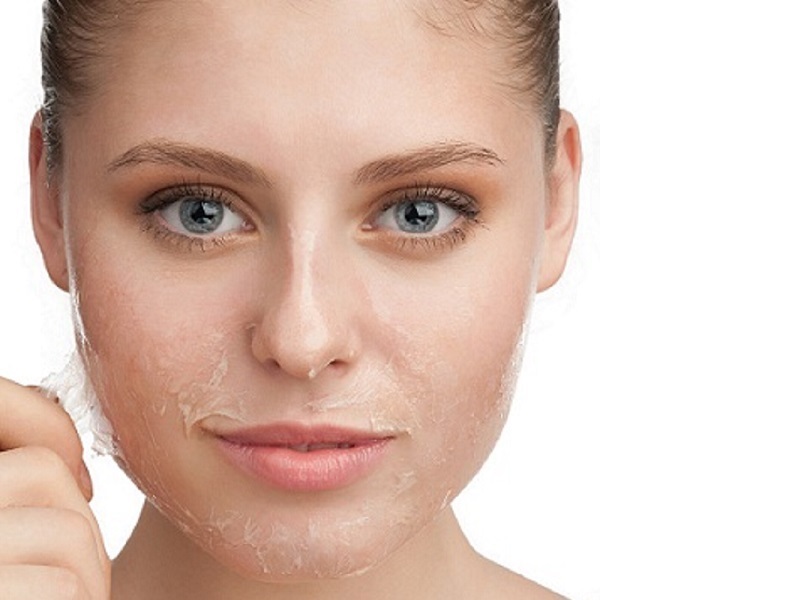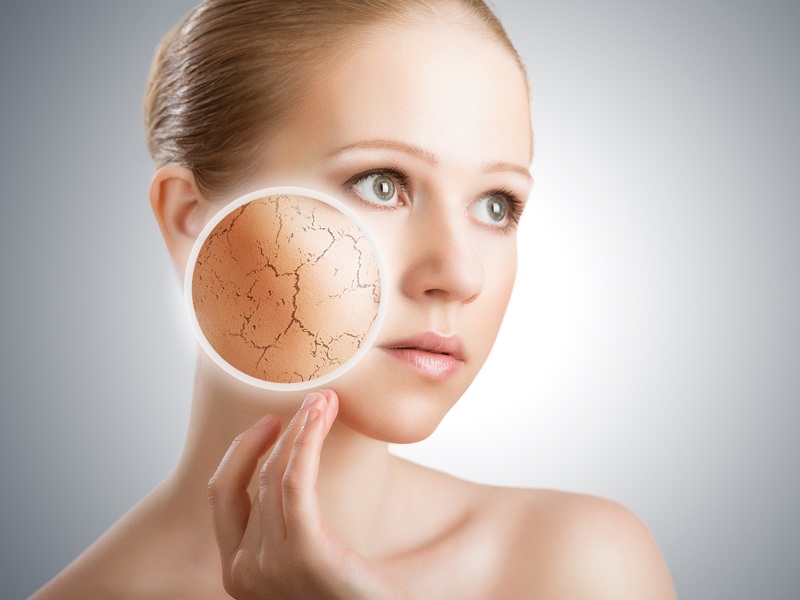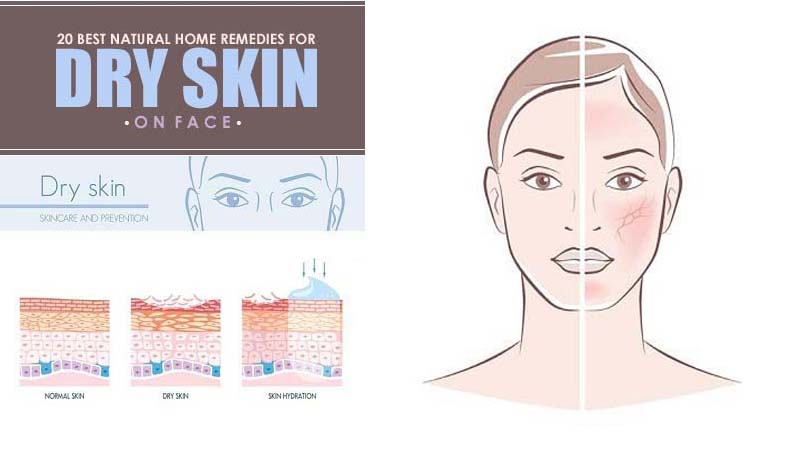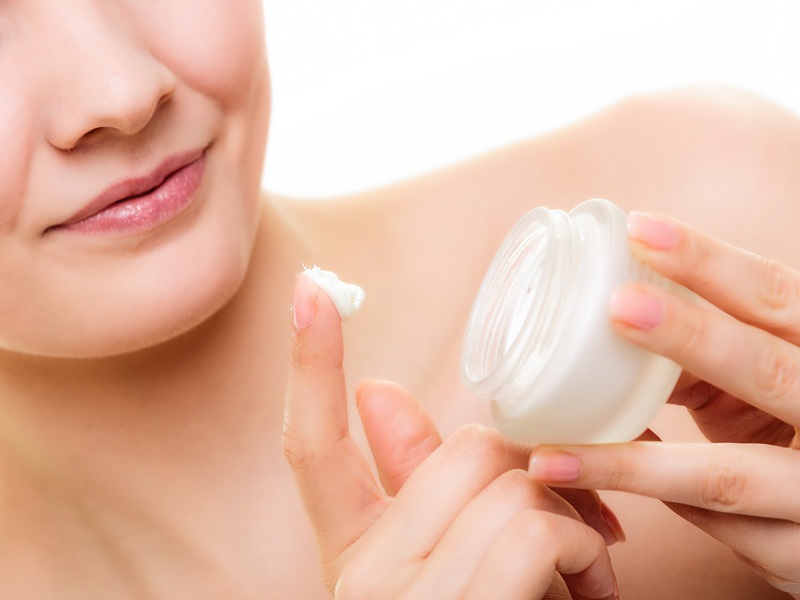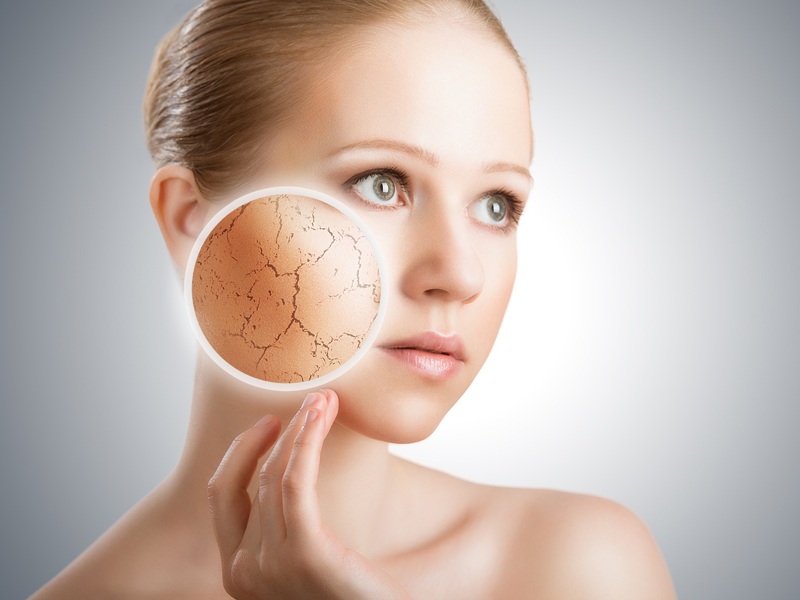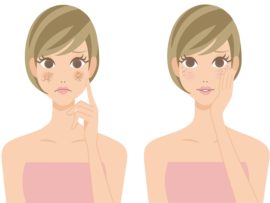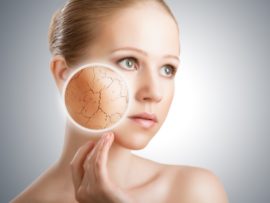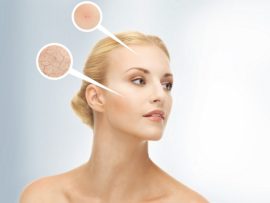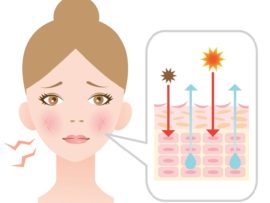Dry skin has become a common problem; dry environmental conditions and exposure to chemical products are common causes. Dry skin, which is medically called xerosis, is a condition where the skin becomes dry, cracked, flaky, and itchy due to insufficient moisture content in the outermost layer of the skin.
Our skin comprises many layers of skin cells; the outermost layer is called the epidermis, nourished by fats and proteins that help provide necessary hydration to the epidermis. The natural oil in the skin helps seal this moisture so it does not evaporate. When these fats, proteins, or natural oils are deficient or insufficient because of atmospheric conditions, it causes skin dryness.
Table of Contents:
- Symptoms of Dry Skin
- Causes of Dry Skin
- Risk Factors for Dry Skin
- When to Consult a Doctor?
- Basic Tips to Prevent Dry Skin
Symptoms of Dry Skin:
Dry skin usually affects the arms, hands, lower legs, feet, and abdomen, but areas of the body that are exposed to frequent friction, like the ankles and soles, are also highly affected by dry skin. Let us look at the various symptoms of skin dryness:
- Itching is one of the most common skin dryness symptoms. Insufficient lubrication and hydration make the skin itchy and uncomfortable. Frequent scratching may irritate the skin further, leading to redness and swelling; in worst cases, the skin may become dark, thick, and leathery.
- Skin dryness usually starts with fine lines and cracks on the skin. In worst cases, these fine cracks may get wider and start bleeding.
- Another common symptom of dry and itchy skin is flaky and scaly skin. With the severity of the condition, the skin gets peeled off.
- You can instantly spot dry skin by its dull and wilted look. Dry skin lacks the shine and lustre associated with well-hydrated skin.
- Dry skin is affected by exposure to water, so one may feel tight skin after a shower or a swim.
- One of the symptoms of very dry skin is fissures and open lesions.
Causes of Dry Skin:
Dry skin is mostly a temporary condition resulting from an unconducive environment, so when the environment becomes conducive, the skin becomes normal. But if dry skin is due to internal factors like illness, genetics, age, etc., the dryness will persist until the cause is treated. Let us look at the various reasons behind skin dryness:
[ Read More: Home Remedies for Dry Skin ]
- Dry weather and environmental conditions are one of the main causes of dry skin. The humidity in the environment plays a very important role in retaining the moisture content within the skin. Dry weather conditions like cold and dry seasons or hot and dry seasons trigger dry skin problems. Air conditioners, room heaters, hot furnaces, fireplaces, etc., also suck out the humidity and cause dry skin.
- Long hot baths or showers, swimming, excessive scrubbing, etc., cause skin and body dryness because prolonged exposure to water washes off the natural oils that help seal the moisture in the skin. Swimming in chlorinated water is also one of the reasons for skin dryness. Chlorine washes off the important natural oils of the skin and causes dry skin.
- Another common cause of dryness in the skin is using harsh soaps and hygiene products laden with chemicals. Soaps contain emulsifiers that work to remove grease, so in the process, they also remove the good natural skin oils that help protect the skin’s hydration.
- Some oral medications like antihistamines and pills to control high blood pressure and cholesterol also cause skin dryness.
- Ageing is also the main cause of skin dryness because, with age, the sebaceous glands tend to secrete insufficient natural oils, thus causing dry skin.
- Our diet plays a vital role in keeping the skin lubricated and hydrated. Malnourishment and vitamin A deficiency often cause dry skin in women.
- Internal causes of dry skin are medical conditions like diabetes, hypothyroidism, skin diseases like eczema and psoriasis.
Risk Factors for Dry Skin:
Though dry skin can affect anyone, certain factors make you more prone to develop dry skin. Let us look at some risk factors:
- The risk of developing dry skin increases with age. As we age, lesser natural oils are secreted, so people above 40 have a 50% chance of developing dry skin.
- Living in regions with dry and low humid weather conditions puts you at a greater risk of developing dry skin. You are more prone to dry skin during winters, extreme heat, or windy climates.
- A job requiring exposure to water, chemicals, or heating tools can sap the moisture from your skin.
- Genetic factors also contribute to dry skin. Family history of skin diseases like eczema and psoriasis.
- A history of skin diseases like atopic dermatitis, eczema, or psoriasis affects the skin’s structure and ability to retain moisture.
When to Consult a Doctor?
In most cases, dry skin is not a serious condition and is always treatable with appropriate care and lifestyle changes. Still, in severe cases, it may lead to complications like deep fissures that bleed and skin diseases like eczema. In such cases, one must immediately check with a doctor to know the underlying cause of dry skin and get appropriate treatment. Bleeding cracks may cause secondary infections that need to be treated with antibiotics. One must also consult a doctor if dryness persists despite proper care. If the skin feels itchy without rash or itching and irritation is keeping you from sleeping, then you must not delay a doctor’s consultation. Before treating it, knowing the reasons for skin and body dryness is always important.
Basic Tips to Prevent Dry Skin:
There could be various other causes of sudden dry skin that can cause us to panic and worry. Dry skin can be managed and cured at home with simple tips and prevention techniques.
- Always make sure to apply suitable moisturizers immediately after a shower or exposure to water. Moisturize throughout the day whenever necessary.
- During cold or hot weather conditions, when you have to turn on the air conditioners or heaters, use humidifiers at home.
- Shower with lukewarm water; never have a hot water shower. Do not exceed your shower time beyond 10 minutes. Avoid swimming for a long time as much as possible.
- Include healthy fats in your diet. Low-fat diets often cause dryness. Our body needs essential fats to maintain the balance of oil in the body.
- Drink plenty of water throughout the day.
- Use mild, moisturizing soaps to wash your body.
Final Thoughts:
Skin conditions can make us anxious and concerned. The reason for dry skin could be many, but it is one of the few skin conditions that can be treated by making simple changes in daily routine and lifestyle. Proper skincare and taking care of our atmospheric conditions can help us prevent dry skin to a larger extent. A healthy diet, exercise, and good sleep can help us manage various health conditions, including dry skin.



